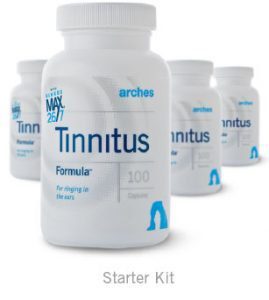By Barry Keate
Barry Keate, has lived with tinnitus over 40 years and has published 150+ research articles on numerous aspects of tinnitus. He is an expert on the condition and a well-known advocate for those with tinnitus.
A recent clinical study has confirmed the effectiveness of using Ginkgo biloba in the treatment of tinnitus. The study was published in the US in a peer-reviewed journal, the Journal of Otolaryngology – ENT Research on December 21, 2017. (1)
Overview of Ginkgo Study
This randomized, placebo-controlled study was conducted over a period of two years and compared 90 participants in three groups. The first group was administered Caroverine, a glutamate antagonist; the second group was administered Ginkgo biloba extract EGb 761; the placebo group was given a daily multivitamin.
The first group was treated with an initial injection of 10 ml Caroverine, followed by Caroverine capsules twice daily. The second group was treated with 120 mg of Ginkgo biloba twice daily.
Caroverine has been used in previous trials with tinnitus and generally shows improvement of symptoms. It is unavailable in the US, pending approval by the US Food and Drug Administration. It is available in some European countries and in Australia.
Study Results for Tinnitus
The object of the study was to test the effectiveness of Ginkgo biloba and Caroverine, both relative to a placebo-controlled study group. Each participant was monitored for six months.
1 – In the Caroverine group, 63% responded favorably to therapy immediately after injection. In the follow-up, 25% had a recurrence of tinnitus intensity after taking the twice daily capsules. The total long-term favorable response was 47.25%.
2 – In the Ginkgo group, 60% responded favorably after three months of treatment. The tinnitus reduction was sustained throughout the trial.
3 – In the placebo group, none of the patients showed a significant response to the multivitamin.
The researchers concluded, “According to the study, Ginkgo biloba is a better drug when compared to Caroverine in the long-term treatment, whereas Caroverine has a better response immediately after administration”.
Study Background
Previous systematic overviews of Ginkgo biloba for tinnitus have shown differing outcomes, depending on the quality of the ginkgo. Studies using the patented, pharmaceutical standard EGb 761 have consistently shown positive results.
Holstein conducted an overview of 19 clinical studies using EGb 761, all of which showed positive results. (2)
Similarly, von Boetticher reviewed 8 clinical studies, all of which used EGb 761, and came to the same conclusion: Ginkgo biloba is effective in reducing tinnitus sound levels for most people who use it. (3)
 The scientific results are clear: Ginkgo biloba – if it meets or exceeds the quality of the industry standard extract, EGb 761 – is effective in reducing tinnitus symptoms.
The scientific results are clear: Ginkgo biloba – if it meets or exceeds the quality of the industry standard extract, EGb 761 – is effective in reducing tinnitus symptoms.
Arches Tinnitus Formula contains our trademarked product Ginkgo Max 26/7®, a more concentrated extract than EGb 761. It has higher concentrations of flavone glycosides, terpene lactones and bilobalide. Bilobalide is a potent antagonist of glutamate and helps reverse glutamate neurotoxicity, one of the primary causes of tinnitus.
Superior ingredients produce superior results™
References:
1 – Otolaryngol ENT Res 2017, 9(4): 00298
2 – Holstein N. Ginkgo Special Extract EGb 761 in the Treatment of Tinnitus. Fortschr. Med. 2001 Jan 11: 118(4) P. 157-64
3 – Von Boetticher A. Ginkgo Biloba Extract in the Treatment of Tinnitus: A Systematic Review. Neuropsychiatr Dis Treat. 2011; 7: 441-447.
